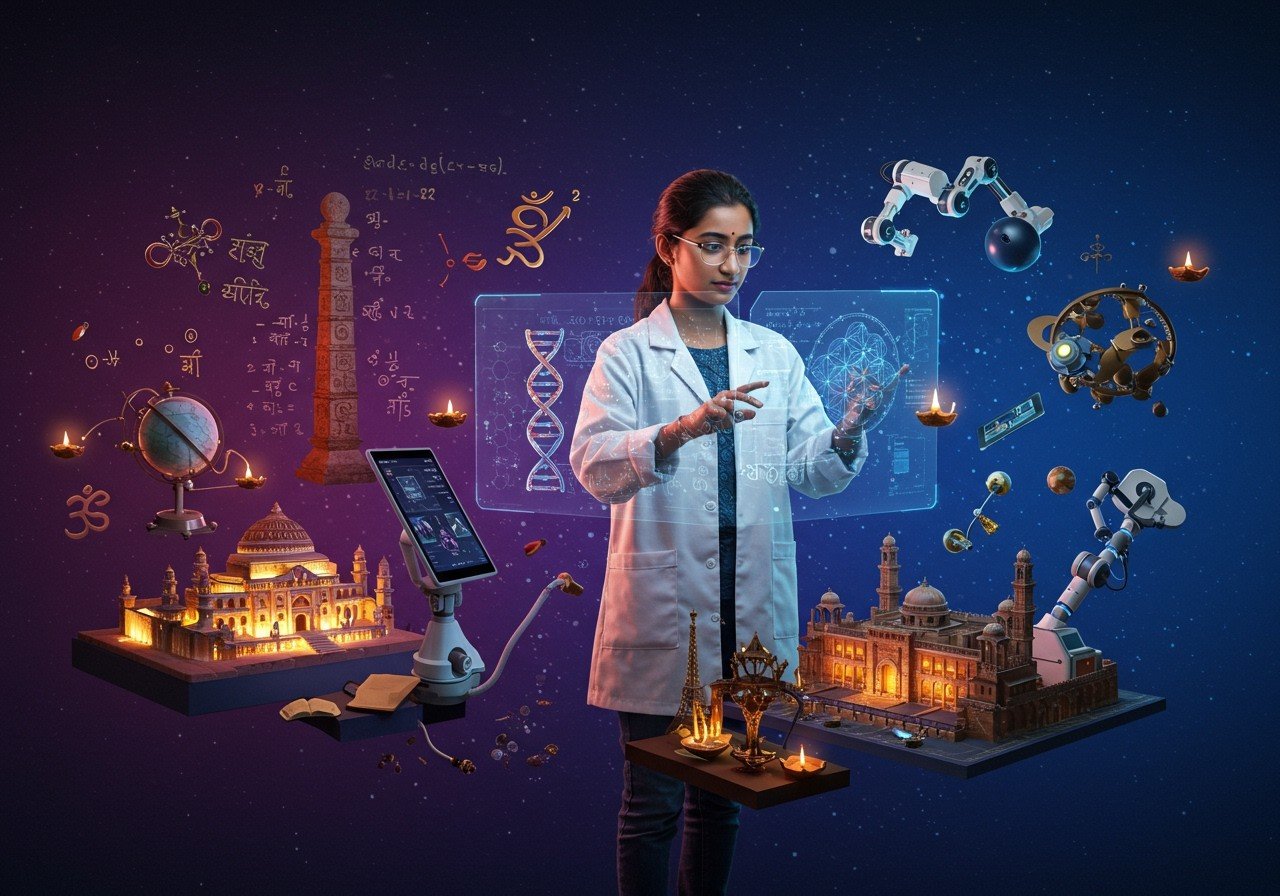
Science and technology education in India is a dynamic field that has witnessed remarkable growth. These resources are vital for establishing India as a global innovation hub. Many Indians, who appreciate tradition while embracing modern advancements, consider these resources indispensable. Science and technology education is pivotal for India’s future, fueling both economic progress and cultural evolution.
Historical Overview of Science and Technology Education in India
Science and technology education in India has strong roots in ancient Indian scriptures and knowledge systems. These ancient texts formed the basis for many modern scientific concepts. The colonial era introduced Western scientific methodologies, further influencing the educational structure. Prestigious institutions like the Indian Institutes of Technology (IITs) and Indian Institutes of Science Education and Research (IISERs) emerged during this period, becoming pioneers in technical education. Post-independence, the government prioritized science and technology to nation-building and economic advancement.
Contemporary Educational Resources for Science and Technology in India
India’s science and technology education landscape is diverse and comprehensive. Blending tradition with modernity, the available resources cater to diverse learning styles. Both the government and private sector play crucial roles in shaping this landscape.
Government Initiatives
The Indian government has implemented numerous programs to promote STEM education. For example, the Atal Innovation Mission (AIM) establishes Atal Tinkering Labs (ATLs) in schools across the country. These labs provide hands-on experience with advanced technologies such as 3D printers, robotics kits, and DIY kits, fostering innovation and problem-solving skills. AIM also organizes workshops and competitions to encourage student participation in STEM fields.
The Rashtriya Avishkar Abhiyan (RAA) seeks to ignite creativity, particularly in rural areas. It promotes hands-on learning in mathematics and science, encouraging exploration and innovation. RAA also facilitates teacher training programs to enhance the quality of STEM education in schools.
Furthermore, the National Digital Literacy Mission (NDLM) focuses on enhancing digital literacy by aiming to make at least one member of every household digitally proficient. This initiative raises technical awareness nationwide, preparing citizens for a technologically advanced future. NDLM offers various digital literacy courses covering basic computer skills, internet usage, and online safety.
- SWAYAM: This online learning platform offers free courses in various disciplines, including STEM, making education accessible across India. It provides a flexible learning environment for students who may not have access to traditional educational institutions. SWAYAM collaborates with top universities and institutions to offer high-quality courses.
- Pradhan Mantri Kaushal Vikas Yojana (PMKVY): This program focuses on vocational training in STEM-related professions, equipping students with industry-relevant skills. PMKVY offers training in areas such as software development, data analysis, and hardware maintenance, preparing individuals for employment opportunities. It collaborates with industry partners to ensure the training aligns with market demands.
Private Sector Contributions
- Infosys Foundation: This foundation actively promotes STEM education through initiatives like establishing science laboratories in schools and providing scholarships to aspiring STEM students. It also conducts workshops and training programs for teachers to improve STEM education delivery. Infosys Foundation’s programs reach students from underserved communities.
- Tata Consultancy Services (TCS): TCS has launched initiatives such as the TCS iON Digital Learning Hub, providing students with access to quality STEM materials and resources. The platform offers interactive learning modules, assessments, and personalized learning paths. TCS iON also provides certification programs to enhance students’ employability.
EdTech Companies
- BYJU’s: BYJU’s offers a wide range of courses with engaging video lessons and personalized learning paths. They cover various subjects, including math, science, and coding, catering to students of all ages. BYJU’s app provides interactive exercises and progress tracking features.
- Unacademy: Unacademy provides accessible learning resources, including live classes, recorded sessions, and practice materials. They cover a wide range of subjects, including competitive exams preparation. Unacademy’s platform connects students with experienced educators from across India.
Other Resources
- Virtual Labs: Virtual Labs offer remote access to laboratory experiments in various science and engineering disciplines, benefiting undergraduate, postgraduate, and research scholars. These virtual labs provide simulations and interactive experiments that complement traditional lab experiences. They enable students to conduct experiments remotely, saving time and resources.
- Spoken Tutorial: This initiative of the ‘Talk to a Teacher’ activity under the National Mission on Education through ICT provides multimedia e-learning experiences, enhancing understanding of complex topics. Spoken Tutorial offers tutorials in multiple languages, making it accessible to a wider audience. They provide step-by-step instructions and demonstrations for various software tools and technologies.
Poojn.in: Supporting Traditional Practices and Modern Learning
Poojn.in offers a range of products that can complement your exploration of science and technology, bridging tradition and modern learning:
- Bel Malas: For mindful focus during studies.
- Turmeric: Known for its potential cognitive benefits.
- Incense Sticks: To create a calming study environment.
Visit Poojn.in to discover a wide variety of products that can enhance your learning journey.
Embracing the Future of Science and Technology Education
India, positioned at the intersection of tradition and innovation, boasts a wealth of science and technology education resources. Government initiatives and private sector contributions collaborate to provide quality education for students from diverse backgrounds. From interactive labs to digital literacy programs, engaging EdTech platforms, and virtual learning experiences, the opportunities are abundant and diverse.
These resources cultivate curiosity, creativity, and technical prowess, equipping students for a future brimming with possibilities. By embracing this fusion of modern educational tools and traditional values, India continues to pave the way for a new generation of thinkers and innovators. Every step taken towards exploring these resources is a step towards a brighter, more informed future.


